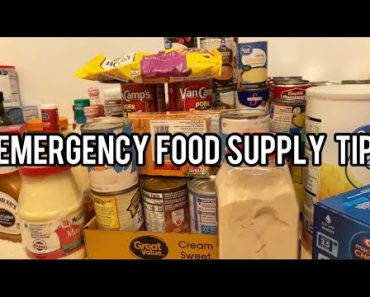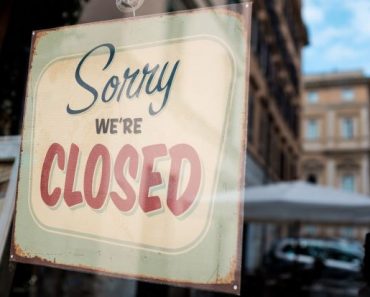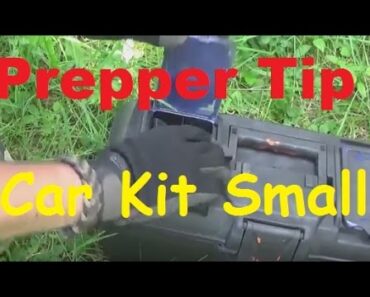With the holidays upon us, traveling is a part of many people’s plans. Families today are much more spread out than they were in past times. In response, getting together for the holidays has become even more critical for those who can. That often means traveling, whether by air or by road trip.
But as we all know, travel can be dangerous. Not only that, but many dangers can happen while we are away from home. I was traveling through Louisiana once when a truck rolled over and exploded on the I-10 causeway. Along with several thousand other people, I was trapped on that causeway, away from any resources besides what I had with me. It was a real eye-opener, as I couldn’t even get to the trees, which were 20 feet below. Fortunately, we were only trapped there for 10 hours, but it could easily have been much worse.
Winter storms are a common problem for travelers, along with the icy roads and accidents that go with them. On another holiday trip, I ended up driving through an area of black ice, where I got caught in a multi-car pileup. Things weren’t too bad until a semi couldn’t stop and plowed right through the middle of it all, scattering cars everywhere.
While neither of those situations ended up being all that serious for me, I was prepared in case they were, as I usually am. Other conditions I found myself in during winter traveling ended up much more severe than those, such as being trapped in the car overnight in a snowstorm.
Just because we are on vacation doesn’t mean that the things that cause us problems are. If anything, they tend to be worse. I don’t have any statistics on it. Still, I’d be willing to guess that the percentage of people who die from exposure or unexpected events while on vacation is significant, especially when compared to those who stay home.
These situations, like any other survival situation, come unexpectedly. That is, of course, a large part of what makes their survival situations. A winter storm, when you’re in a lovely warm home, is something to watch through the windows. But that same storm can become deadly when we’re on the road, away from home. Accidents, sliding off the road, getting lost, or running out of gas in the middle of nowhere can make those situations even more dangerous.
A large part of what makes these situations so dangerous is that people go into them unprepared. That’s understandable for those who aren’t preppers, but it happens to preppers too. Somehow, when we go on vacation, many of us seem to go on leave from prepping as well. That doesn’t make a lot of sense, but we do it anyway, justifying it to ourselves by saying that “We’re just going on vacation; nothing’s going to happen.”
That statement goes against everything we are as preppers, but unfortunately, that doesn’t stop us from rationalizing our actions that way. Sadly, that’s the last major statement they make, one that they regret to the grave.
Get Informed
A little research can go a long way towards protecting yourself from danger on any trip. I always spend a little time online before taking a trip, checking the weather along the way and at my destination. I also take the time to look at historical weather patterns, knowing that meteorologists, like baseball players, don’t run a very high batting average. If you’re going anywhere near the eastern or gulf coasts, check on the risk of hurricanes, too, even though it’s a bit late in the year for that.
Weather isn’t the only thing to look at when traveling. Check into the crime rate in the area you’re visiting. Before making a hotel reservation, make sure that your potential hotel isn’t in the wrong place. My wife and I were recently planning a trip and booked a hotel. Then a family member told us that the hotel was in one of the worst crime areas of their city. We ended up having to change our accommodations.
If you’ve got a concealed carry license, you need to check whether the license is recognized in the state you will be traveling to and conditions along the way. A few years back, a man traveling by air was on a flight that was forced to land in New Jersey due to bad weather. His concealed carry pistol was legally stowed in his luggage, which wasn’t a problem until the airline gave him his luggage to spend the night in a hotel. An hour after getting settled in at the hotel, the police came and knocked on his door, arresting him for having a pistol in New Jersey without a license.
Such situations are rare but real. Anti-gun states seem to be somewhat proficient at finding when those licensed to carry enter their states. What could be something innocent can end up with a stay in jail if we go in contrary to local laws.
Plan for an Emergency
Armed with information, it’s a whole lot easier to plan for potential emergencies. Take a mental look over the scheduled trip and think of every possible crisis that you could encounter along the way. That doesn’t take long, as most potential problems will come to mind quickly, in a matter of moments. What is it going to take to deal with those problems?
The same things will help you deal with a wide variety of problems, just like your normal preps allow you to be ready to deal with a wide variety of disasters. So we’re not talking a lot of extra gear. Essential tools for making one engine repair will make most repairs. Emergency gear for surviving one sort of survival scenario will likely protect you from all situations.
Of course, you should have emergency equipment in your vehicle all the time anyway, so what you’re looking for is to see if there’s anything you need to have which isn’t part of what’s already there. Vehicle problems are vehicle problems, so the most significant problems you need to be concerned about are usually severe weather situations. Therefore, the big concern is making sure you have what you need to make it through that weather.
The other important part of planning for emergencies on your trip is to have a contact who knows your entire trip itinerary. As you are traveling, keep in touch with that person, letting them know your progress and that you are okay. If they don’t hear from you, their job is to call and report you as missing so that the authorities can start looking for you.
This one step is probably the most critical piece of preparation you can make. Most people who search and rescue find are found because of being tipped off early by someone like this. When you’re in a survival situation, time becomes critical.
Travel Prepared
My attitude about packing has changed over the years. Most men I know try to pack light, planning their wardrobe ahead of time, so that they can wear the same two pairs of pants over and over again, rather than packing three or four pairs. But that doesn’t leave any room for problems. If one pair of pants gets dirty, they don’t have a spare. If they’ve got to change a tire or make an emergency repair, they have no extra clothes to make up for those that get dirty when making that repair.
I made a discovery several years ago. That is, whatever vehicle I’m driving runs just as well and gets just as good a gas mileage whether I’m bringing just one suitcase or I have it packed full. In other words, carrying extra clothing and emergency equipment doesn’t cost me a thing. Granted, I don’t want to be carrying all those suitcases into a hotel, but there’s nothing that says they all have to go in; they can just as well stay in the truck, as long as they can be locked up.
That extra space allows me to take a couple of extra outfits of clothing. That’s saved me from problems more than once. But it also allows me to carry along clothing for different temperatures and weather conditions. No matter what, I’m going to have a jacket, hat, gloves, and a raincoat, even if the weather is expected to be perfect.
Of course, extra clothing isn’t going to solve everything. Countless problems dress isn’t going to solve. That’s why it’s important to carry emergency and survival gear along. I don’t go anywhere without a good emergency kit for my vehicle and the equivalent of a bug-out bag for my survival.
My bug-out bag and emergency bag are heavy on survival gear, especially tools. I don’t think in terms of having to survive three days, nor do I think in terms of having resupply available. I pack as if what I’m carrying is all I’m going to have. While I believe in having supply caches set, I never assume that I will have them available to me.
Maintaining Situational Awareness
The other thing that causes people a lot of trouble while traveling is a general loss of situational awareness. Pickpockets and other criminals look for vacationers, knowing that they’re not going to be paying attention to anything around them. At the same time, those people will probably have large amounts of cash on hand, as well as cameras and other valuables.
These sorts of criminals succeed because nobody pays attention to them, seeing what they are doing. They can’t make an excellent report to the police because they didn’t see what was happening. There’s a good chance they don’t even realize that they are being robbed until long after it happened.
It’s pretty easy to thwart most of these criminals; all you have to do is keep your head on a swivel, looking around. Even if you don’t see a lot, the fact that you are looking around will be enough to give them pause. They won’t know if you’re looking to see the sights or looking for someone that’s about to attack you. But because you are looking, they’re going to assume that you’ll remember them. Rather than taking a chance on that, they’ll find someone else to bother.
Situational awareness goes a whole lot farther than just looking for attackers. It also includes looking around to see other dangers, like inclement weather. If a storm is coming, clouds have to come rolling in first. That’s a noticeable sign, which is pretty easy to see. But if you’re not looking, you might not notice until the clouds get heavy enough that it’s getting dark.
Learning the environment where you’re going to be is an essential part of your situational awareness. Every environment has a sound and a rhythm to it. Becoming acclimated to that will help you recognize anything out of order, making it easy to spot it when something is starting to go wrong. While a few extra minutes of notice might not protect you from a problem, those minutes might also be all you need to have to keep a bad situation from becoming a dangerous one.
A couple of key examples of this that come to mind are car accidents and avalanches. It is often possible to spot the conditions for an avalanche if you’re looking for it. Once you do, you can start working yourself out of that area, even though there isn’t an avalanche happening. Likewise, it’s easy to spot road conditions that can cause accidents, like the black ice I mentioned earlier. Just knowing that makes it possible for you to take steps that might help you avoid an accident, minimize any accident that you might be in, or even get off the road to avoid the accident altogether.
Regardless of how you do it, don’t let your prepping and survival skills go on vacation just because you are on vacation.
You can still retain situational awareness and enjoy your trip, relaxing and having a good time. The little extra effort you spend in making sure that you see what’s going on around you might even help you have a better time, as you see exciting things in the environment that you might otherwise have missed. At the same time, it could help you to avoid danger, allowing your holiday family reunion to be enjoyable, rather than being your next survival test.




























